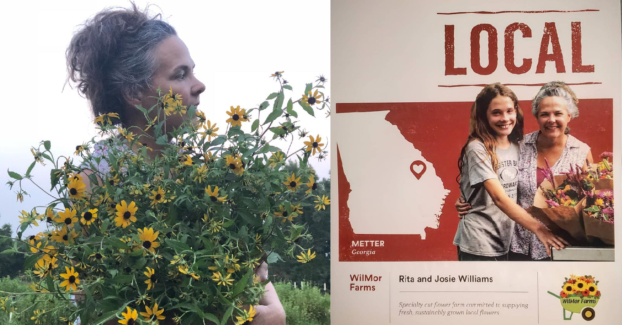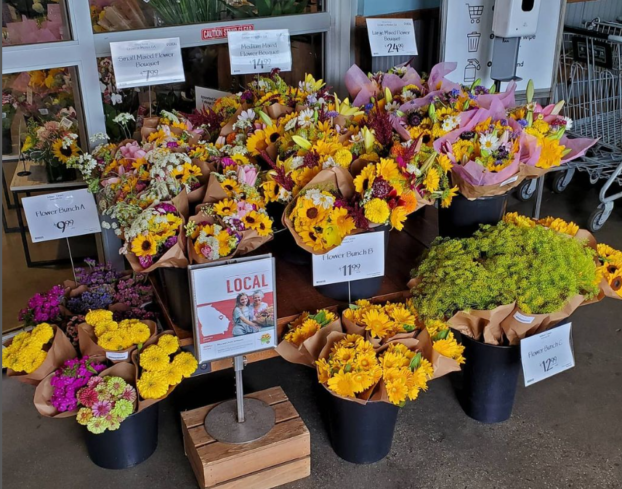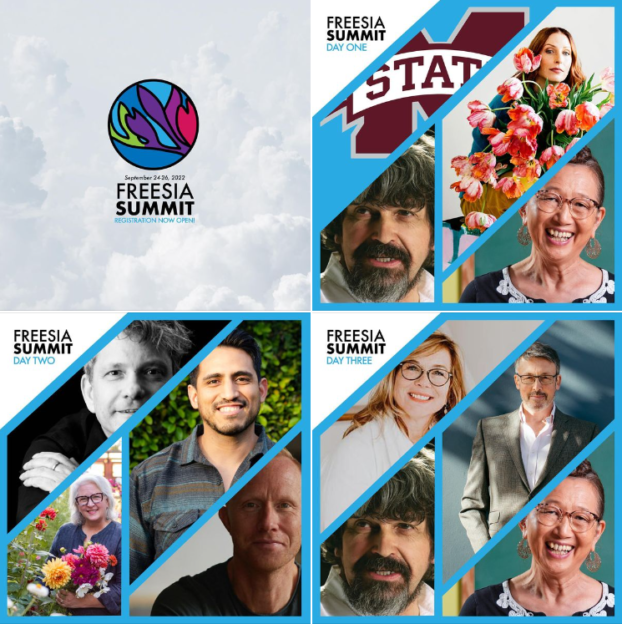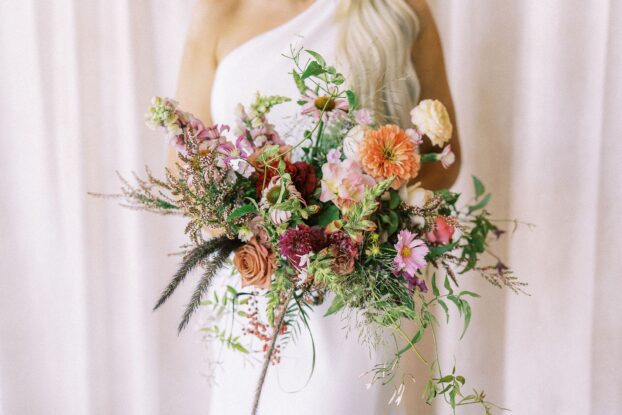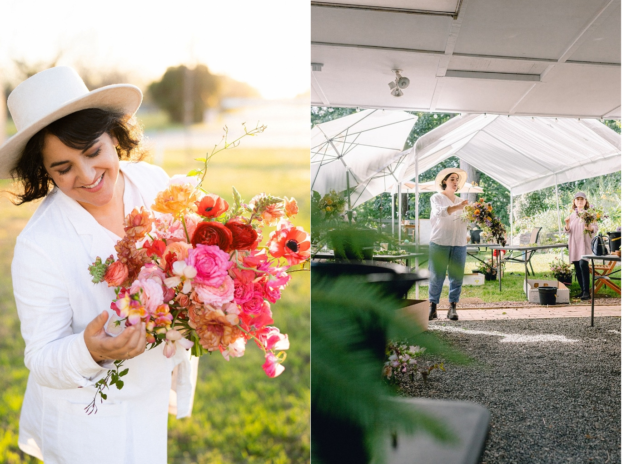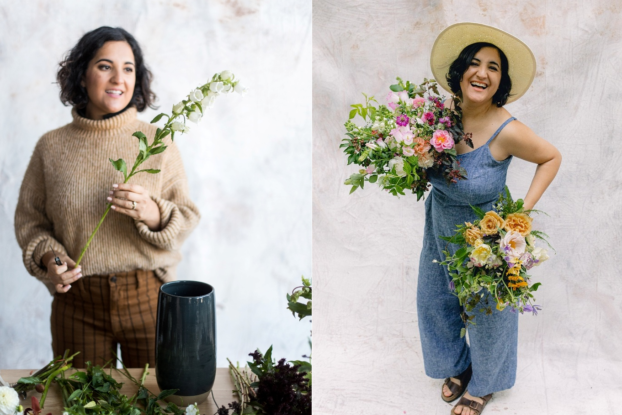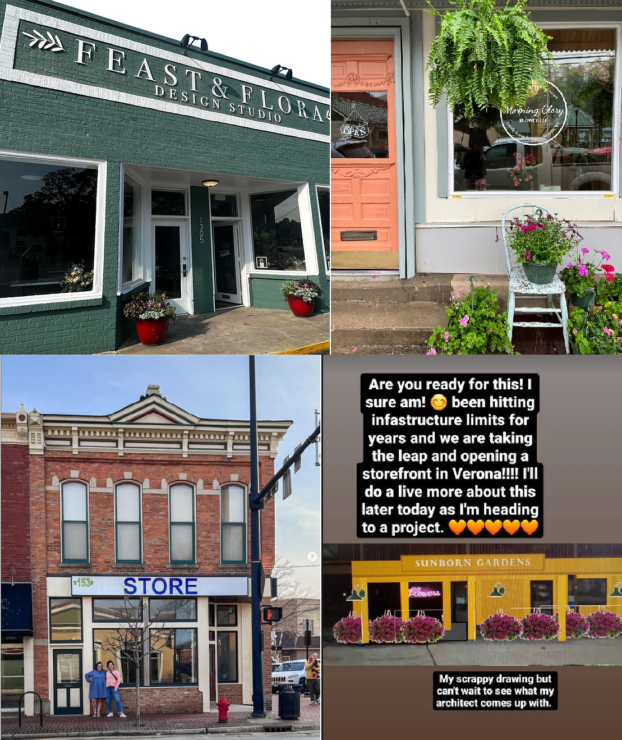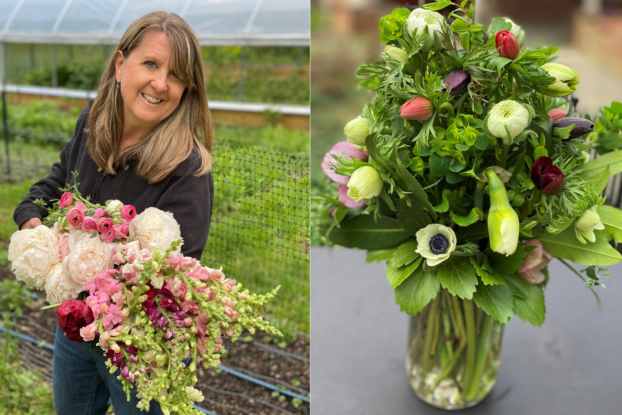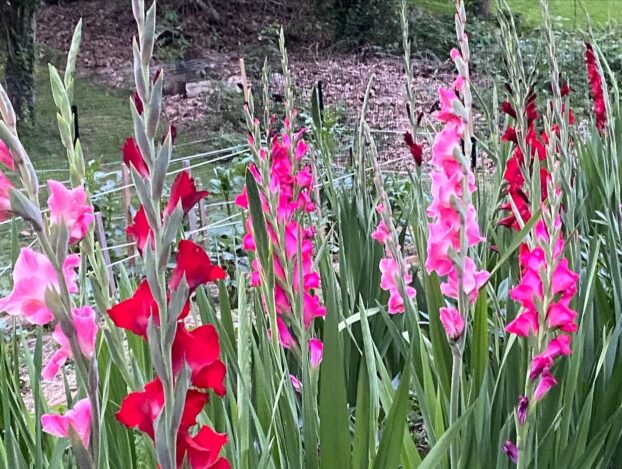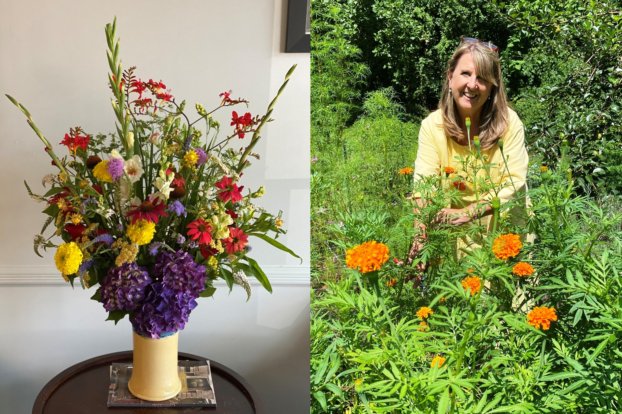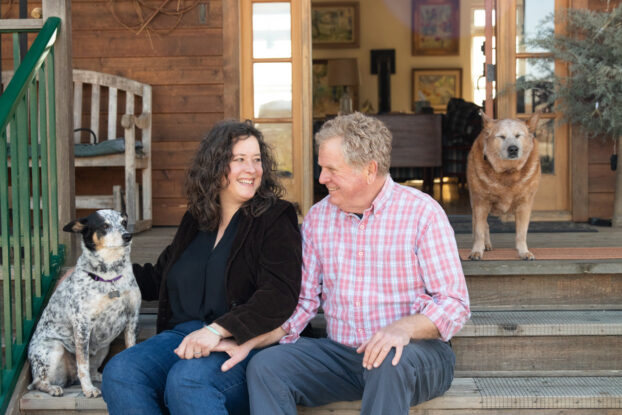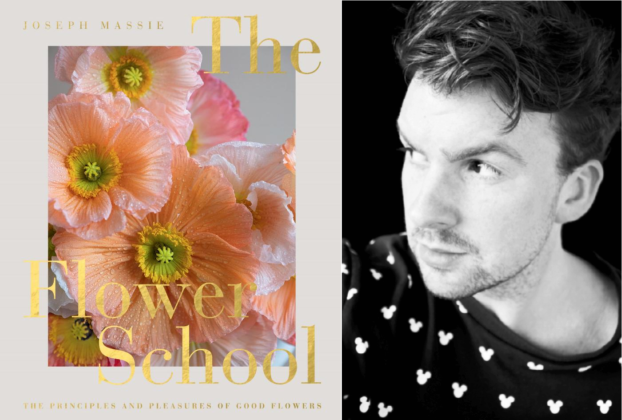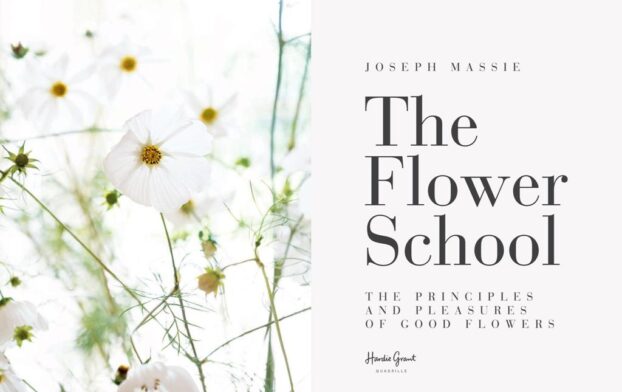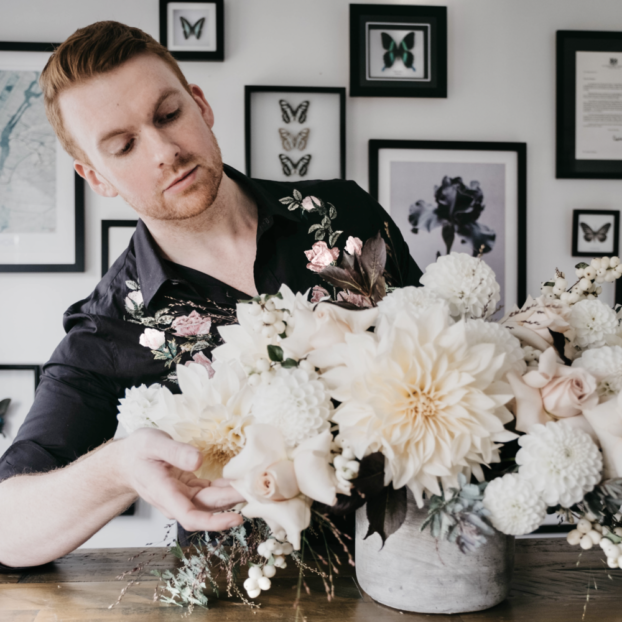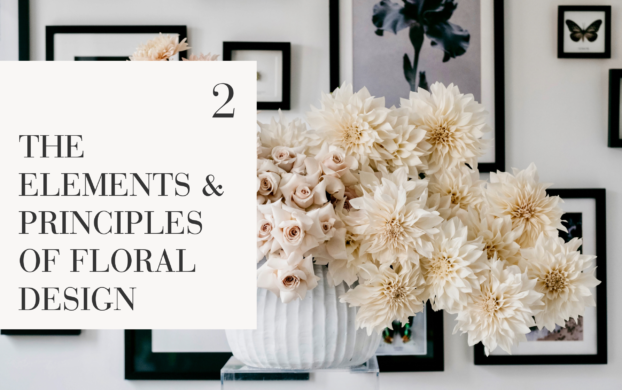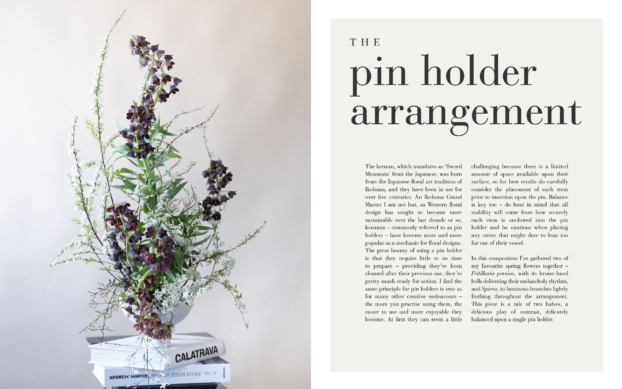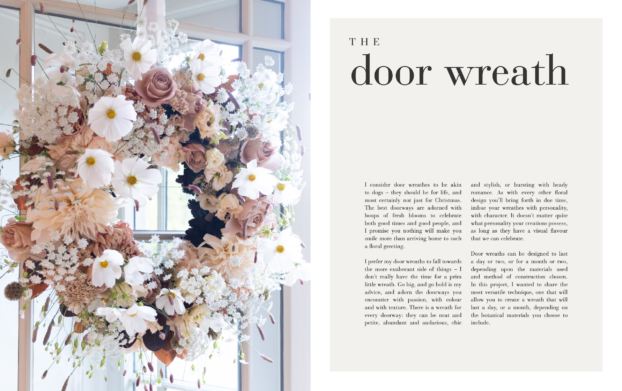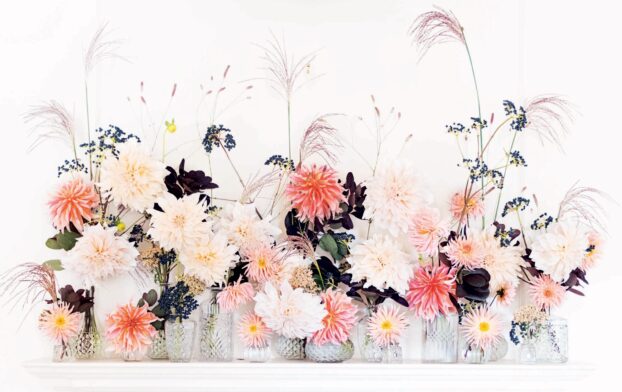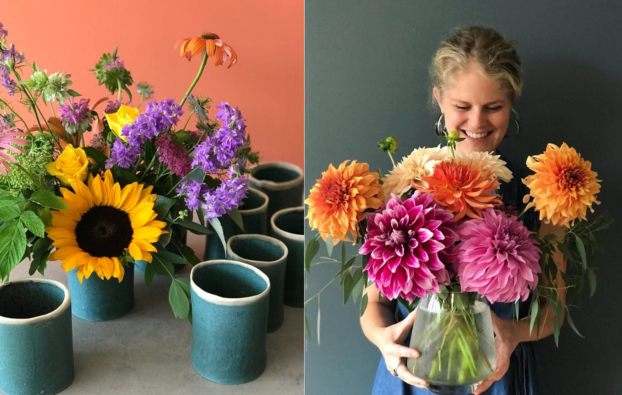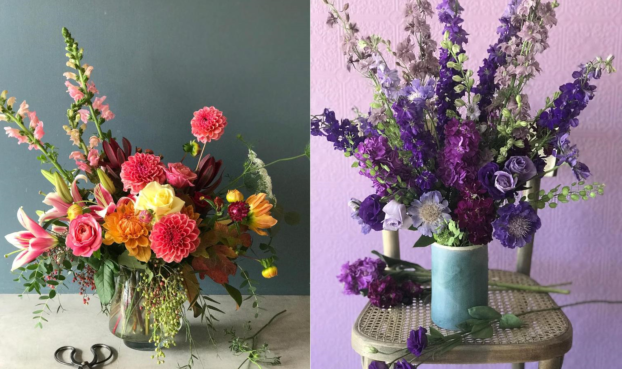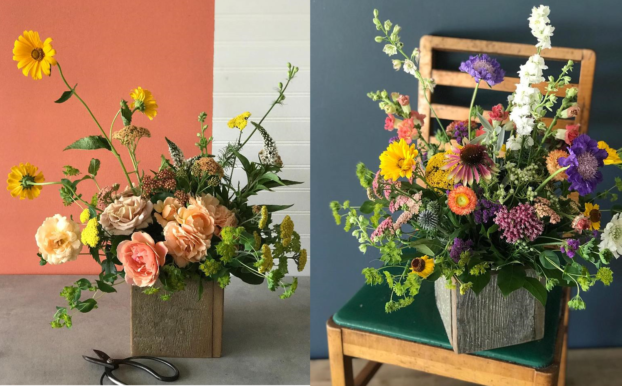Podcast: Play in new window | Download
Subscribe: Apple Podcasts | Podcast Index | RSS | More
This week, we meet another inspiring Slow Flowers member, a farmer-florist whose Fernley, Nevada, enterprise is inspiring, considering some of the challenging growing conditions there. Trisha Starkey, owner of Petals and Pages Flowers, is farming in her fourth season. Her farm is situated 35 miles outside of Reno, at 4,500 feet elevation.
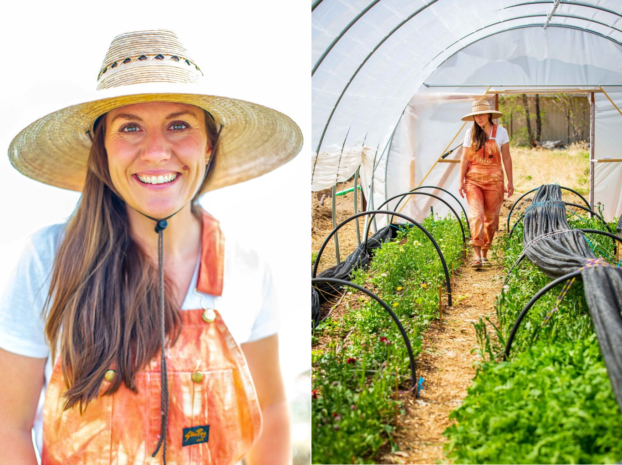
We’ll start out this episode with a 30-minute narrated tour that Trisha filmed for us — she introduces us to important infrastructure features, discusses her watering and growing practices, and shows off the late season flowers. Petals and Pages is located in USDA Zones 7b/8a and surprisingly, the area hasn’t yet been hit by frost.
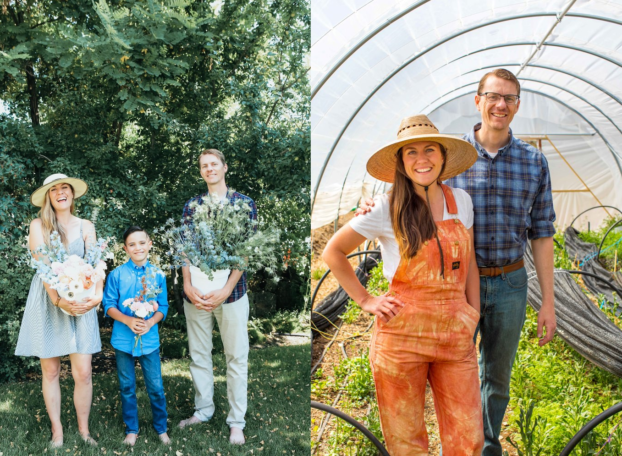
Here’s a bit more about Trisha Starkey and her farm. Petals and Pages is a Certified Naturally Grown family farm dedicated to growing unique flowers. It is also a design studio and floral experience for couples who seek authentic, one-of-a-kind designs that help celebrate their special day. Her story is long and relatable, and you’ll want to read her personal narrative, excerpted here:
In 2015 we purchased our 1970’s era home on just shy of an 1.25 acre plot. We signed the final paperwork in the fall as the trees and shrubs on the property stood bare and the house felt cold and drafty. At first, we just chalked this up to the time of year and the lack of recent residents but come spring of 2016 we began to piece together that the house and land had been severely neglected. Derek set out to restore it little by little and I began to daydream about relocating to an area known for more fertile soil. As time went on and more issues arose we began to feel deflated. We bled cash to fix emergency breaks in the house, and the movie “The Money Pit” starring Tom Hanks and Shelly Long was like watching our lives on screen (but much funnier). 2017 and 2018 almost broke us as new home owners but we are both fiercely stubborn and wouldn’t give up. Slowly over time our innovative minds began thinking of the house and land as more of a companion rather than a small child stomping their feet while hurling obstacles our way. Looking back, I think this change of view was a turning point for us.
Derek built up his compost bins, we planted trees, shrubs, and bulbs, we pruned our sad trees, and added beneficials to the soils and instead of “cleaning up” the natural debris of the fall season we began leaving it to rot away. This suddenly changed our soils. We could dig down and actually see life happening! It was a very exciting time for us, simultaneously, it was around this time that I started paying attention to how unmotivated I was by my days in the office. We knew that if we were going to someday turn our farming hobby into a full-blown career and functioning farm I had to pour my heart, soul and most importantly time into it. After months of stress and exhaustion, I wrote my resignation letter.
Since that day, we’ve never looked back. Sure, there are absolutely days where I wonder what on earth we’re doing and question my own sanity but mostly I look around and feel overwhelmed with gratitude that I get to create, grow, and pour love into this land with my incredible family by my side. To read more in depth click HERE for our first part of a three part series of blogs.
“Our History,” from Petals and Pages Flowers
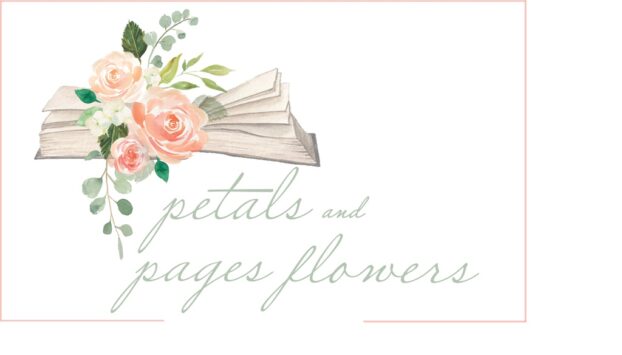
Thanks so much for joining us today. Trisha and I ran out of time, but I wanted to share one of her future goals. She says, “In 2024, we will have a beautiful space to welcome customers to our farm for a more hands-on learning experience. We want to help others grow on small scale farms and become profitable farms, too. We also would like to host workshops on our farm and hold farm to table dinners with local food and flowers.”
That’s something to look forward to! By the way, Trisha — if you’re still looking for a “D” name for your 4th compost bin, I suggests you name it “Debra” – ha!
Find and Follow Petals and Pages Flowers at these social places:
Petals and Pages on Instagram
News for the Week
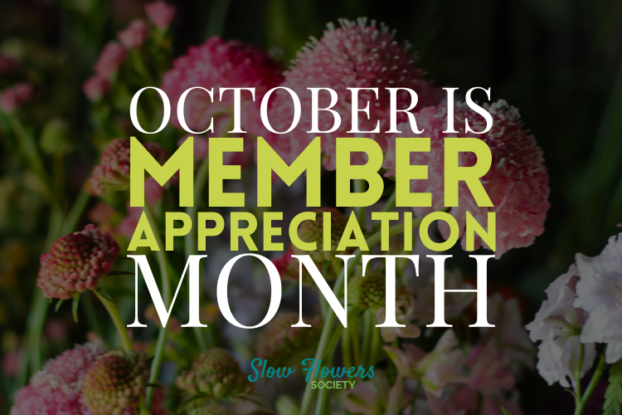
October as membership appreciation month continues and you’re invited to get involved. You can find the full schedule of Tuesday’s Instagram Live sessions with me and Thursday Zoom Lunches with Tonneli Gruetter, our membership and community engagement manager.
Also this month, any new member who joins and any Standard level member who upgrades to Premium will be included in our drawing for our Perennial Membership — a three-year membership. That’s a $649 value! Please reach out to Tonneli at membership@slowflowers.com, with any questions.
Thank you to our Sponsors
This show is brought to you by Slowflowers.com, the free, online directory to more than 850 florists, shops, and studios who design with local, seasonal and sustainable flowers and to the farms that grow those blooms. It’s the conscious choice for buying and sending flowers.
Thank you to our lead sponsor, Farmgirl Flowers. Farmgirl Flowers delivers iconic burlap-wrapped bouquets and lush, abundant arrangements to customers across the U.S., supporting U.S. flower farms by purchasing more than $10 million dollars of U.S.-grown fresh and seasonal flowers and foliage annually. Discover more at farmgirlflowers.com.
Thanks to Mayesh Wholesale Florist. Family-owned since 1978, Mayesh is the premier wedding and event supplier in the U.S. and we’re thrilled to partner with Mayesh to promote local and domestic flowers, which they source from farms large and small around the U.S. Learn more at mayesh.com.
Thanks to Details Flowers Software, a platform specifically designed to help florists and designers do more and earn more. With an elegant and easy-to-use system–Details is here to improve profitability, productivity, and organization for floral businesses of all shapes and sizes. Grow your bottom line through professional proposals and confident pricing with Details’ all-in-one platform. All friends of the Slow Flowers Podcast will receive a 7-day free trial of Details Flowers Software. Learn more at detailsflowers.com.
Thanks to CalFlowers, the leading floral trade association in California, providing valuable transportation and other benefits to flower growers and the entire floral supply chain in California and 48 other states. The Association is a leader in bringing fresh cut flowers to the U.S. market and in promoting the benefits of flowers to new generations of American consumers. Learn more at cafgs.org.
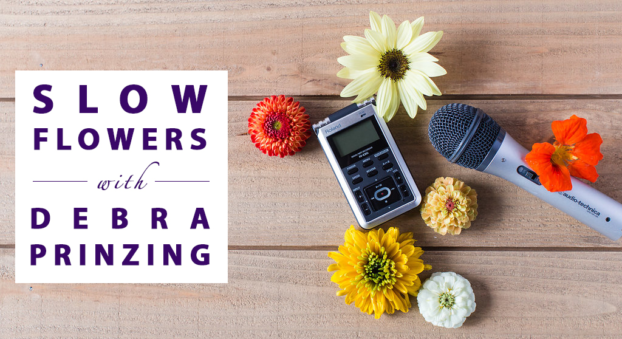
Thanks so much for joining us today! The Slow Flowers Podcast is a member-supported endeavor, downloaded more than 900,000 times by listeners like you. Thank you for listening, commenting and sharing – it means so much. As our movement gains more supporters and more passionate participants who believe in the importance of our domestic cut flower industry, the momentum is contagious. I know you feel it, too. If you’re new to our weekly Show and our long-running Podcast, check out all of our resources at SlowFlowersSociety.com
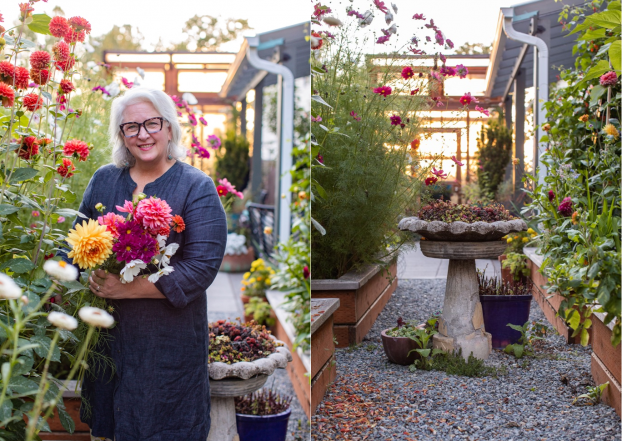
I’m Debra Prinzing, host and producer of the Slow Flowers Show & Podcast. The Slow Flowers Podcast is engineered and edited by Andrew Brenlan. The content and opinions expressed here are either mine alone or those of my guests alone, independent of any podcast sponsor or other person, company or organization. Next week, you’re invited to join me in putting more Slow Flowers on the table, one stem, one vase at a time.
Music credits:
Town Market; Turning on the Lights; Gaena
by Blue Dot Sessions
http://www.sessions.blue
Lovely
by Tryad
http://tryad.bandcamp.com/album/instrumentals
http://creativecommons.org/licenses/by-sa/3.0/
In The Field
audionautix.com










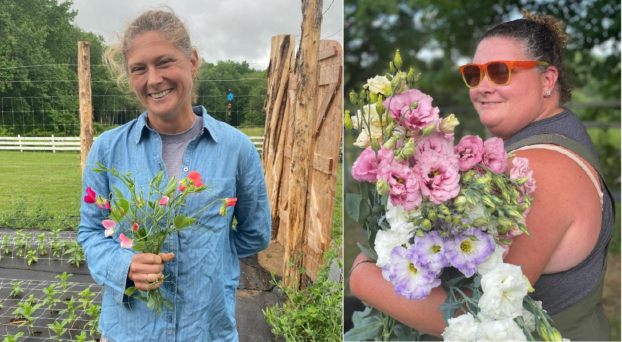
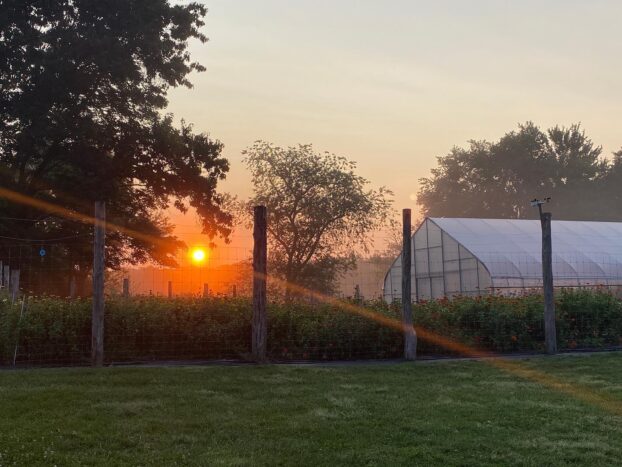
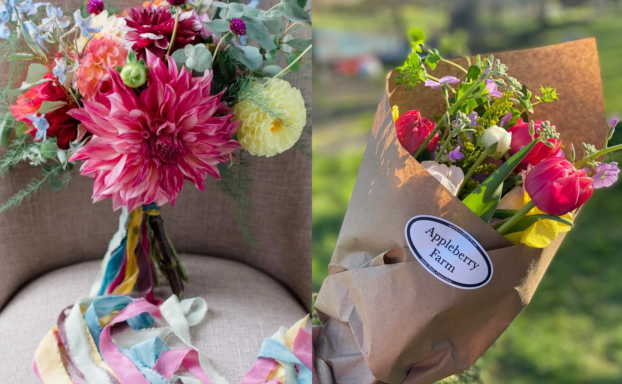
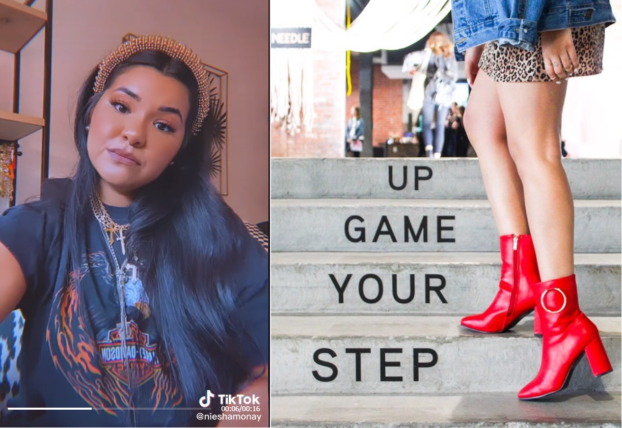
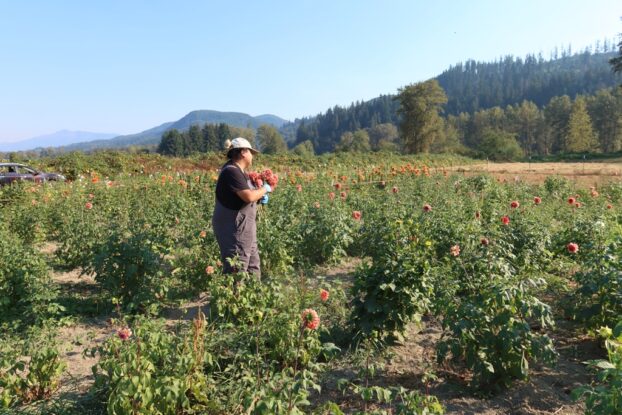
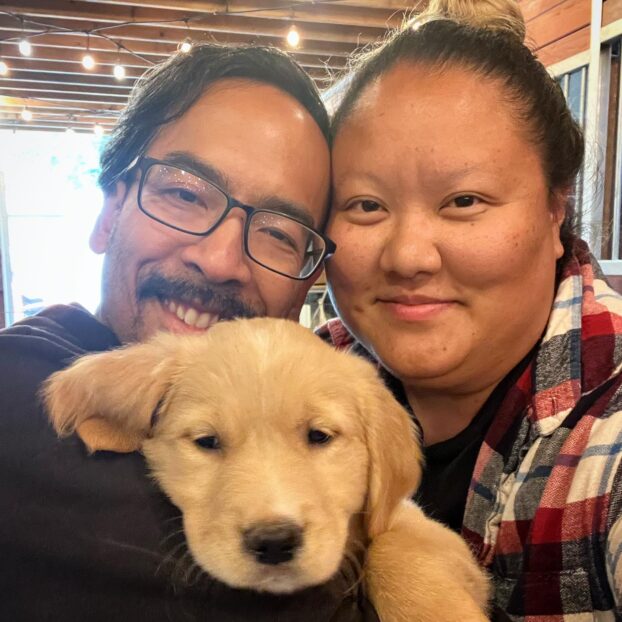
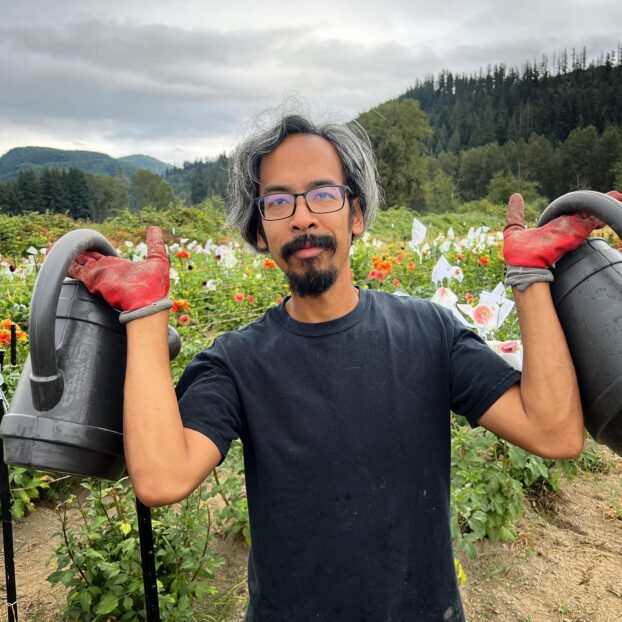
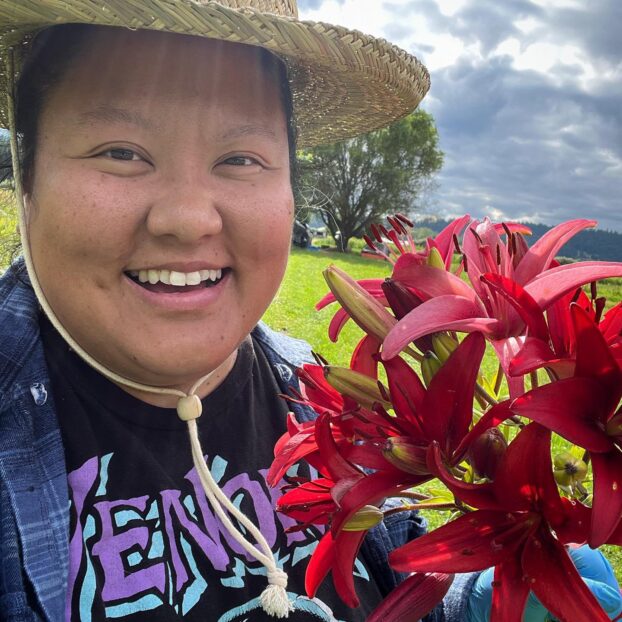
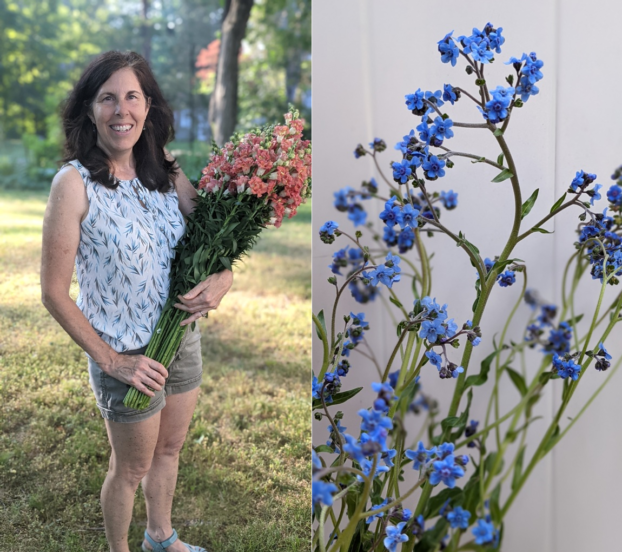
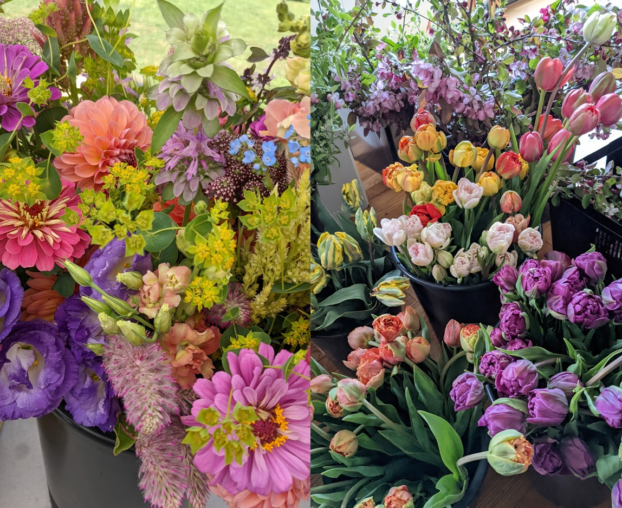
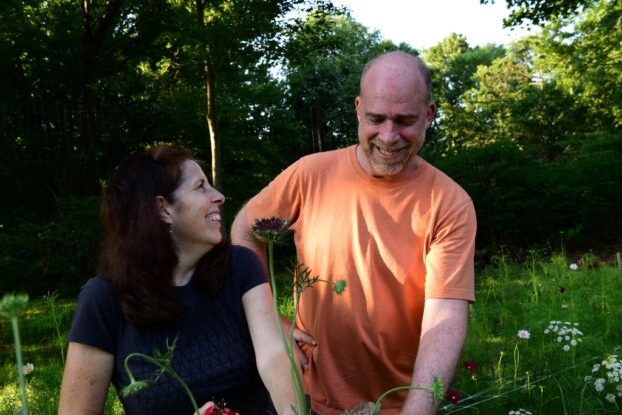
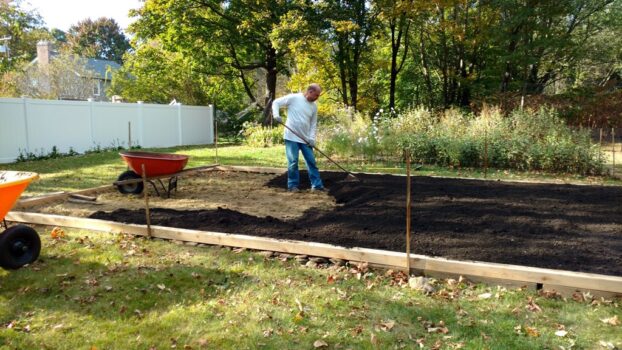
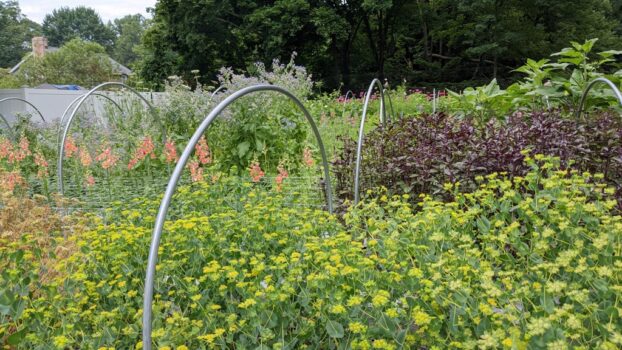
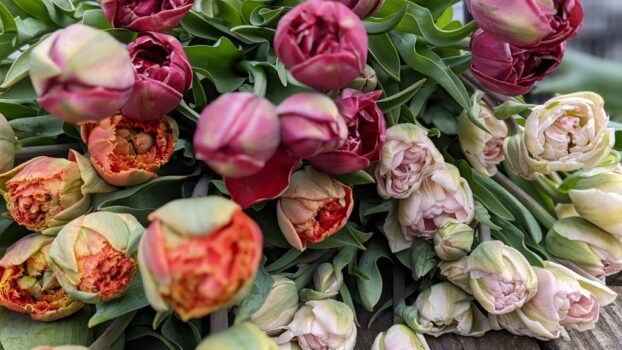
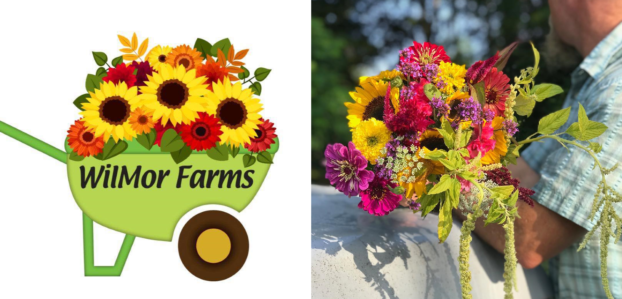
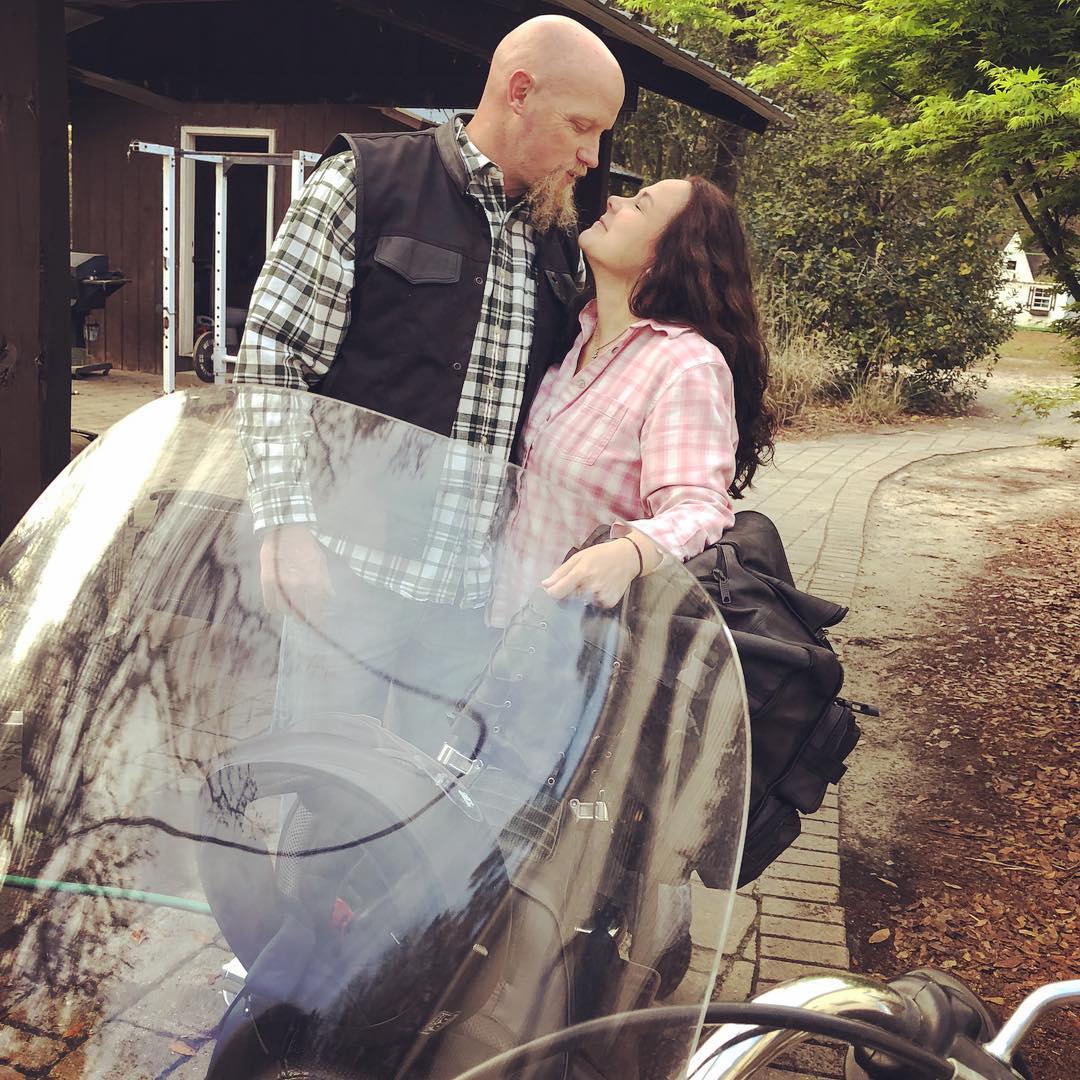 The conference took place in Charleston, South Carolina, and Rita and Mike arrived by motorcycle — a more than 150-mile trip that impressed me and let me know they were the cool kids.
The conference took place in Charleston, South Carolina, and Rita and Mike arrived by motorcycle — a more than 150-mile trip that impressed me and let me know they were the cool kids. 